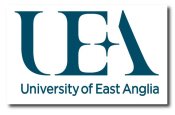David H has posted his take on the importance of the redactions here. I was in the meantime working on my own version of the same story. I'll post it here anyway, in case people want a different take on the same facts.
In David's post yesterday, he described how a new release of data from UEA shows how his submission to the Russell review had been heavily edited before Geoffrey Boulton sent it to UEA for a response. He also outlined the evidence that suggests strongly that the full unedited version was supplied to Osborn and Briffa, possibly from another source, in spite of UEA's claims to the contrary.
 Some of the most important omissions concerned the IPCC’s retrospective change of the deadline for submissions to the Fourth Assessment Report, a change that was apparently made in order to allow the Wahl and Ammann paper to be used against McIntyre and McKitrick’s refutation of the Hockey Stick.
Some of the most important omissions concerned the IPCC’s retrospective change of the deadline for submissions to the Fourth Assessment Report, a change that was apparently made in order to allow the Wahl and Ammann paper to be used against McIntyre and McKitrick’s refutation of the Hockey Stick.
Prior to the IPCC review, clear deadlines for submission of papers had been set and these had been reiterated to authors on a number of occasions. The relevant IPCC documents were described in Holland's Russell submission and in particular, he highlighted a policy document written by the IPCC Working Group 1 Technical Services Unit:
When the second draft of the AR4 is written authors need to be sure that any cited paper that is not yet published will actually appear in the literature, is correctly referenced, and will not be subsequently modified (except perhaps for copy editing). In practice this means that by December 2005, papers cited need to be either published or "in press".
When the second draft of the AR4 is sent to Governments and experts for the second round review, the TSU must hold final preprint copies of any unpublished papers that are cited in order that these can be made available to reviewers. This means that by late-February 2006 if LAs can not assure us that a paper is in press and provide a preprint we will ask them to remove any reference to it.
In essence then, the paper had to at least be in press by the end of December 2005 and the authors then had to come up with a preprint by the end of February. Holland quoted these excerpts in para 42 of his submission, and went on to explain their importance as follows:
The above instruction imposed additional strict conditions necessary to ensure that Government and Expert Reviewers were reviewing the actual paper, as it would be published. It might be argued that it extended the “in press” deadline to any time in December 2005, although it did not specifically state that. It did make it absolutely clear, however, that a final preprint copy had to be held by the TSU by late February 2006 and that failure meant that citations must be removed.
However the whole of this clarification was removed by the Russell team before they issued their version of Holland's submission to UEA.
In para 44 of the original submission, Holland had also noted an email that showed that Eugene Wahl himself had assumed that Wahl and Ammann 2007 had missed the IPCC WGI deadline of December 2005 and that it could not therefore be cited. The email also shows that Jonathan Overpeck waived this rule in February 2006:
44. On 11 February 2006 in email 1141180962, Wahl tries to secure the acceptance of Wahl and Ammann writing to the editor, Stephen Schneider, of the journal Climatic Change:
“Hello Steve:
Caspar and I expect to have the final manuscript to you in 7-10 days with all the revisions you requested in December. I have recently had some correspondence with Jonathan Overpeck about this, in his IPCC role. He says that the paper needs to be in press by the end of February to be acceptable to be cited in the SOD. [I had thought that we had passed all chance for citation in the next IPCC report back in December, but Peck has made it known to me this is not so.] He and I have communicated re: what "in press" means for Climatic Change, and I agreed to contact you to have a clear definition. What I have understood from our conversations before is that if you receive the mss and move it from "provisionally accepted" status to "accepted", then this can be considered in press, in light of CC being a journal of record.
Peace, Gene”
However, inexplicably, para 44 was deleted by the Russell team in its entirety.
In para 45, Holland had referred back to para 44 saying that the sentence in brackets: “shows that [Wahl] had understood the clear TSU instruction that the paper had to be ‘in press’ by 16 December and was not expecting his paper, written with Caspar Ammann, to be acceptable to the IPCC WGI TSU”. But of course, with para 44 no longer in place, this made no sense. Consequently, when Briffa and Osborn responded to Boulton they said:
“No text from Wahl is quoted above and therefore this statement is in error.”
Thus the important evidence that the IPCC’s rules had been overridden by Overpeck and that Wahl believed that his paper had missed the deadline was neatly sidestepped. But what is most remarkable about Osborn and Briffa’s response is this: we know from UEA’s letter yesterday that the two UEA men knew exactly what was in the missing paragraph because Briffa had received the unredacted text from elsewhere.